Read Part One of the Article Here.
Balasaheb Bharde: I would like to ask the House how much time should be spent on this matter.
Mr. Rambhau K. Mhalgi: This is an important issue. The agenda for today can be taken up tomorrow.
Mr. S. K. Athalye (Ratnagiri): Honorable Speaker, I stand to wholeheartedly support the amendment to the proposal. It is true that this House has some special privileges, but at the same time, Speaker Sir, the people of this state also have certain special rights that this House must not forget.
Speaker Sir, if anyone holds the misplaced belief that this Assembly has privileges similar to those once enjoyed by feudal lords or landlords, then I must say that such a belief is wrong. The important issue here is not how much punishment we give. Even those who have suggested reducing the punishment to a single day have acknowledged that a crime has been committed. However, the committee has stated that the person in question is responsible for his actions. Does that mean the punishment should be based on the fact that he is a responsible person? If so, we must consider why a responsible person found himself in such a situation. However, the committee has not considered that. If no such consideration has been made, and someone is trying to protect their status by claiming "we have privileges here," I humbly tell them, just as the rights of feudal lords and landlords were abolished, these privileges will also be eradicated. Therefore, no one should advocate for such protection.
It is inappropriate to put forth demands or seek justice in this manner. If demands cannot be raised or justice cannot be sought properly, then at the very least, we are acknowledging the crime committed and issuing a token punishment. This will not lower the prestige of the House or its members but will elevate it. But if we argue that a seven-day or even a seven-year punishment should be imposed, thinking that this will enhance our status, it will only lead to further division. The mentality of imposing such severe punishment, thinking it will elevate us, is a fundamentally flawed approach. Instead, we must consider why the person acted in this manner. There are established norms in a democracy.
Speaker Sir, many have sacrificed and endured hardships to bring about reforms in democracy. If we wish to keep democracy alive, it does not matter how severe the punishment is. The symbolic one-day punishment should be imposed to signify that this path was wrong. But to insist on more severe punishment, like seven days, will only ignite a new battle on the democratic field. And just like the feudal lords who opposed democracy were erased, those who follow this kind of democracy will soon disappear too.
Whether the punishment is seven days or one day holds importance, but the true significance lies in understanding the broader perspective. Therefore, I request that only a one-day punishment be imposed.
Mr. A.R. Antulay (Shrivardhan): Honorable Speaker, if we take just a minute to understand the meaning and reason behind the word "privilege," it would be appropriate for this discussion. Rights and privileges. We all have rights, but why do the members of this House require privileges? If we clarify this for ourselves, this issue could be resolved in an instant. If any external person tries to blackmail or interfere in any way with the privileges of any honorable member of this House, regardless of their age or influence, it should not be tolerated. This privilege has been granted to each member, and it is crucial for maintaining democracy.
For example, I am a member of this House, and all of us here are members. If someone tries to stop me while entering the House or threatens me by saying that I spoke a certain way on an issue, and they plan to take some action against me for it, such intimidation cannot be tolerated. More importantly, my constituency consists of 150,000 people, and even if God himself descended from the heavens, he would not be able to satisfy all their expectations.
If a person, using a pass granted by us, sits in the gallery and, based on their own opinions, writes something defamatory about me and circulates a pamphlet in this House, that would amount to blackmail. This would prevent honorable members of this House from fearlessly performing their duties. I want to say here that the people who sit in the gallery cannot, in any way, participate in the proceedings of this House. Their presence is not considered a part of this House’s proceedings. Therefore, if any external person attempts, directly or indirectly, to participate in the work of this House or tries to defame its members or the House itself, and we let them go or give them a mild punishment, it would not be appropriate in terms of the dignity of this House or the ability of the members to perform their duties fearlessly.
What happened today could also happen to members of the opposition, because in any constituency, there will always be at least one person who holds some form of grudge against the elected honorable members. If such a person tries something similar, it will hinder the members from fulfilling their democratic responsibilities. It doesn’t matter whether they belong to the Congress party or any other party; such an offender must be punished. A similar incident happened in Uttar Pradesh, where accusations were made against opposition members. In that case, neither the government nor the House took the view that no action should be taken simply because the allegations were against opposition members.
A similar attempt was made concerning this House in Nagpur, and it was also addressed. Throughout the development of democracy in our country and elsewhere, such situations have never been treated with partisanship. Therefore, I urge the opposition members not to view the motion brought by the Chief Minister with opposition in mind.
In this case, a punishment of seven days has been imposed. I believe that a very lenient view has been taken here. If this incident had occurred in a court of law, a much harsher punishment would have been imposed. In the Mumbai High Court, during a speech by the Advocate General, two disrespectful words were uttered against the presiding judge, and a two-month sentence was handed down. In that case, the party was willing to apologize, but the court imposed the sentence without any leniency. In the present case, the accused (Mr. Dhakane) is neither willing to apologize nor express any remorse. Therefore, not only should a seven-day sentence be imposed, but even a two-month sentence would have been justified. However, the Chief Minister has proposed a seven-day sentence as a token punishment. If we continue to impose token sentences, then the privileges of this House and its honorable members will remain token privileges. We must reflect on this.
Therefore, a recommendation has been made to impose a minimum sentence of seven days, and the House should accept it. I request the opposition leaders to withdraw their amendment and contribute to upholding the dignity of democracy.
Shri Jambuwant Rao Dhote (Yavatmal): Mr. Speaker, honorable member Shri Boman Behram raised a point in his speech on this matter, stating that the offense was committed in this House yesterday, right in front of all of us, and we have to decide on it. While mentioning that we have the right to punish for that offense, Behram referred to the court's ruling. He raised a legal point here. Therefore, I would like to inform him that a case of contempt of court is not tried in the same court that has been insulted but in another, higher court. The court that has been disrespected does not even have the right to testify. A contempt of court case does not proceed in the same court that has been insulted; it is heard by a different superior court. I just wanted to provide this information for his knowledge.
Shri N.V. Ugle (Ashti): Mr. Speaker, I stand here to support the amendment brought by the Leader of the Opposition to the Chief Minister's proposal. Shri Babanrao Dhakne committed an act yesterday from the audience gallery of this House, for which an amendment proposing a seven-day punishment has been placed before the House. I oppose the original proposal and support the amendment.
Shri Dhakne has clearly mentioned in his written statement why he did what he did. His Pathardi region is particularly hilly and faces various difficulties. Over the past few years, different types of developments have occurred in various parts of the state, but no attention has been paid to the Pathardi area. For the past 20 years, the member elected to this House from that region has not raised any issues faced by the area. In protest, people from many villages in that region have hoisted black flags. Not only this, but Dhakne, who is a Congress member of the Zilla Parishad from that area and also a member of the Standing Committee, has not been able to address the issues of his constituency. In protest of this, Dhakne led a march of ten thousand people from the Pathardi taluka to the taluka office. This is a fact. Despite all this, the government has paid no attention to their demands and grievances. Hence, to bring the issues of his taluka before this House, Dhakne printed a leaflet and attempted to draw the House's attention to it through the principle of Satyagraha.
This is the highest House of our state, and naturally, he felt that the issues of his taluka should be raised here. Given the manner in which he made this effort, it is not possible for him to apologize. There is another side to this matter, which he has admitted. The report clearly states that Shri Dhakne admitted the truth of the charge. Therefore, his attempt was not to insult the House but merely to draw the honorable House's attention to the situation in his constituency. Even the slogans he raised were aimed at seeking justice.
Mr. Speaker, I would like to say that when a criminal confesses his crime unambiguously before the court, the court also gives him the minimum possible punishment according to the law. We all know that during major Satyagraha movements, when the law is deliberately broken, the Satyagrahis are arrested and produced before the court. They openly admit that they broke the law as part of their Satyagraha. After their admission, they are often given token punishment and released.
Today we are in an era of democracy and are seated here as people's representatives. Therefore, it is our duty to protect the rights of the people. While supporting the amendment brought by the honorable Leader of the Opposition, I have deliberately provided the detailed background of the issue behind this question. Considering that, I urge the House to accept the amendment, and with this, I conclude my speech.
Dr. B.S. Bhatkar (Dadar): Mr. Speaker, I stand to support the proposal presented by the honorable Chief Minister and oppose the amendment given by the Leader of the Opposition. I would like to tell my friends from the Opposition that today they are on the other side, but if they ever have to come to this side (although that possibility is slim), I am sure that if papers were thrown from above, they would take note of it just as we are today.
This decision has been taken from the perspective of strengthening democracy. Once we have decided to conduct our affairs democratically, we must also seek redress for our grievances democratically, whether or not that path is agreeable or whether it takes time to achieve justice. I have respect for the honorable member Shri Dhote, who raised the point that a judge who has been insulted cannot preside over the same case. However, I do not know the procedure in the Legislative Assembly since a no-confidence motion against the Speaker has not yet been presented here, and with God's grace, it should not come. But I have experience in the Mumbai Municipal Corporation (honorable member Shri Krishna Desai will second this) that when Shri S.K. Patil was the Mayor of Mumbai, he continued to preside over the discussion on the no-confidence motion brought against him and did not step down from the chair.
Mr. Speaker, I am not saying that no injustice has occurred, but if we begin to endorse such acts as a way to seek justice, it will not be appropriate. On the one hand, we claim to believe in democracy, while on the other, we indirectly encourage such actions, which is not right.
Shri D.B. Patil (Panvel): Mr. Speaker, I stand to support the amendment proposed by the honorable Leader of the Opposition. Various speakers have expressed their thoughts on this amendment. Primarily, concerns have been raised about what will happen to the sanctity and prestige of this House. This House is regarded as a symbol of sanctity and prestige, and I do not oppose that belief. However, we must also consider why this House has attained that sanctity and prestige.
This House is composed of people's representatives, elected according to democratic principles and rules. It is the House of representatives sent by the people with the hope that their grievances will be addressed here, and the injustices they face will be resolved. But, this House has failed to meet the expectations of the people. Over the last twenty years—whether it’s one year, two years, ten years, or twenty years—the people have experienced the same thing: the representatives they have elected are not voicing their concerns and aspirations in this House. When people see this, they become disillusioned and incidents like yesterday’s occur.
Mr. Speaker, we must see whether the hopes and emotions of the people are being reflected here. We gather here as representatives of the people, and it is because of this role that we have certain rights. While we may say that no one should create disorder in this House, we also need to consider whether the public will accept that. In earlier times, when kings sat on thrones, anyone who looked at the throne with ill intent would be severely punished because kings regarded their throne with great esteem. However, history shows that when the royal throne began to oppress the people, it started to lose its stability. I agree that, as per the rules, what that young man did yesterday was wrong, and he should be punished accordingly. But he came here because he had faith in democracy. He came here to voice his grievances, even if in an unconventional way. If he had lost faith in democracy, he wouldn’t have come here at all. If he had no faith in democracy, he would have dedicated himself to destroying it and made efforts in that direction. But, seeing a glimmer of hope, he came before the people's representatives. He came here because he believed that justice might still be served. If someone wishes to set an example by sentencing him to seven days of punishment to intimidate others, they will not succeed.
If the representatives of the people fail to resolve the people’s dissatisfaction, what should the people do? This question arises from this situation. He exercised his democratic rights. Over the past twenty years, even though his actions may not have been in line with the rules, we must recognize that the young man still believes in democracy. An honorable member mentioned that if we reduce his punishment, it will weaken the public's faith in democracy. However, when anti-social criminals involved in the FEDCO case were released, did that strengthen or weaken the democratic pillar? Have these people considered that? In that case, the faith in democracy was eroded, and the dream of democracy was threatened. If someone questions the need for such democracy, it wouldn't be wrong.
Yesterday, it was mentioned that someone convicted of bribery was granted "A" class privileges. Will this strengthen or weaken the public’s faith in democracy? A person convicted of bribery is given "A" class status and luxurious treatment in the jails of this state. Naturally, the public will begin to question why we even need this democracy. When we think about democracy with genuine concern, shouldn't we also consider the feelings that such cases evoke in the public? Sometimes, when safeguarding democracy by following rules, certain rules may be broken. It is said that the young man should have followed the rules in whatever he did. But shouldn’t those responsible for ensuring that the sanctity of democracy is not violated also take care to uphold it? The question arises whether we should sentence him to seven days or one day. He is an enthusiastic young man. I am not disclosing his political affiliation, but that young man is sincere to the people. He came here because he believed in democracy. He is honest with the people, which is why he was elected to the Zilla Parishad. He is trying to resolve the problems of the people in his taluka. He is working for the welfare of the people. Even if we punish him according to the rules, we must acknowledge his sincerity to the people.
Mr. Speaker, we too must strive to be sincere to the people. Simply pointing to the rules will not suffice. Our democracy is imported from England. The special privileges we enjoy are also imported from there. I am using the word ‘imported’ deliberately. While we are demanding democratic rights like in England, we also need to examine what we are doing to uphold the responsibilities that come with those rights. Compare the work done in the constituencies of ministers and those close to them with the work done in other constituencies. You will find that significant development has taken place in the ministers’ constituencies, while little to no work has been done in others. This is a fundamental injustice to democracy. In democracy, everyone should have equal opportunities. If the Cabinet does not ensure this equality, it becomes difficult to accept this imported democracy. If such things happened in England, the public would have immediately demanded accountability. While we sit here as representatives of the people, are the things being done truly in favor of democracy? If not, then we have no right to exercise these imported special privileges. That right has been taken away from us, leaving only the facade standing.
I will conclude my speech with one final example. When we talk about democracy, do we follow all the principles of democracy? This government has established a code of conduct for ministers. If we do not follow the democratic traditions we have accepted, how can the sanctity of democracy remain intact? On May 6, 1966, during a discussion on a resolution, it was mentioned that –
‘This code of conduct was formulated based on the recommendations of the Santhanam Committee appointed by the Government of India. The Santhanam Committee also recommended a code of conduct to prevent corruption among Members of Parliament and Members of Legislative Assemblies.’
Deputy Chairman: The discussion is now on the special breach of privilege motion brought by the honorable Chief Minister and the amendment by the Leader of the Opposition. Therefore, we can only discuss the motion and the amendment.
Mr. D. B. Patil: Can't we speak on the matter of the dignity of democracy? We must certainly take necessary precautions for the dignity of the House. We are not suggesting that the person in question should be fully pardoned or declared innocent. What I am pointing out is that the resolutions passed to maintain the dignity of this House were not implemented by the government. Democracy is invoked here time and again. I do not wish to say anything personally about the honorable Deputy Minister, Mr. Venkatrao Hire.
Vice President: You are only allowed to speak about the rights of the House.
Mr. D. B. Patil: I don’t understand why this issue cannot be brought up here. The question of the sanctity of this House has arisen, and I want to show how the Chief Minister's sacred responsibility has not been upheld. A news item about Mr. Venkatrao Hire was published in Maratha; I do not know whether it is true or false.
Vice President: You are only allowed to speak on the rights of the House today. The matter you are referring to can be brought before the House through other means.
Mr. D. B. Patil: Mr. Speaker, I need clarification on one issue: if a member is giving an example related to the subject during a discussion, is that example allowed or not?
Vice President: Yes, it is allowed.
Mr. D. B. Patil: Then why am I being obstructed while presenting that example? Yesterday’s Maratha newspaper published a story about Mr. Venkatrao Hire, which has created an atmosphere of suspicion. The honorable Chief Minister should have made a statement yesterday or today to dispel this doubt, but that has not happened. It was his moral responsibility, which he has failed to fulfill. In such a situation, where is the dignity of democracy, and where is the dignity of this House?
Mr. Speaker, the leader of the opposition, Mr. Dhulap, has thoughtfully put forth a motion regarding Mr. Dhakane’s case. Whether it is a punishment of seven days, seven weeks, or seven years, if someone believes that this will increase faith in democracy or in this House, that understanding is wrong, in my clear opinion.
Democracy means the rule of the people, and in such a system, efforts should be made to address the problems and sufferings of the people. That young man raised the issues of the people with the concerned authorities and ministers, but when there was no resolution, he ultimately brought the injustice before this House. We should consider this. In such circumstances, if a deterrent punishment is attempted, it will erode people's faith in democracy and pose a great threat to it.
If you think this threat can be eliminated through such punishment, that effort will be ridiculous. People endured various punishments for freedom; they faced lathi charges, many were killed in shootings, and some were hanged. Their faith in democracy should not be lost. In this situation, sentencing Mr. Dhakane to seven days of punishment is not appropriate. Therefore, I request that the motion brought here be accepted.
Mr. G.R. Khaire (Purandar): Mr. Speaker, I stand to oppose the amendment motion introduced against the resolution presented by the honorable Chief Minister. When the leader of the opposition introduced the amendment, it seemed like he brought it forward out of sympathy for Mr. Dhakane. However, after hearing the thoughts expressed following the amendment, it became clear that this issue was deliberately orchestrated. It seems there is an attempt to encourage such acts through this amendment by allowing someone in the gallery to deliberately violate the principles of democracy. We suspect this amendment is meant to promote such behavior. During the Nagpur session, college students committed a similar act, which was referred to the Privilege Committee. After that, this incident occurred. The real question is whether you will accept this amendment or not.
Mr. Speaker, it is disappointing that, yesterday, we were discussing national unity in this House, and at that time, the leader of the opposition said that good values should be promoted in society. So, will such amendments promote good values?
Mr. Speaker, speeches are being made here in a way that even challenges the ruling given by the Chair. In such a situation, I request the leader of the opposition to withdraw the amendment they have proposed.
Mr. Navneet Shah (Palghar): Mr. Speaker, I stand to oppose the amendment presented before the House. When the issue of the dignity and rights of this House has arisen, we must think beyond party lines and discipline and form a fair opinion from the position of being members of this sovereign House. We have not been granted any special status; the common voters have elected us here. We are working here as their representatives. If anyone deliberately disrespects this House, I don't think punishing them is wrong.
Through this amendment, it has been requested that Mr. Dhakane's sentence be reduced from seven days to one day. It is said that the motive behind his action should be considered before giving the punishment. I believe that distributing pamphlets, knowing the rules of the House, and deliberately entering the House and performing the act indicates that he was fully aware of the seriousness of his actions. The Privilege Committee's report clearly shows that he was satisfied with what he did. Therefore, I believe that the punishment recommended by the Privilege Committee should be accepted.
The established practice is that decisions on matters deliberated in the Privileges Committee are taken up in the House. Yesterday, leaders from all parties and groups were called, and the consensus emerged that this issue should be referred to the Privileges Committee, and it was based on that consensus that this decision was made. The Privileges Committee represents this House, and many members of this House are part of that committee. The committee, acting as a collective body, has made a decision on this matter and formed its opinion. It would have been better if these points had been raised at that stage in the committee. While I am not saying that the punishment given must be accepted without question, I believe that, generally, we should accept the decisions made by such a prestigious committee of our House.
Even if the Privileges Committee had decided to give a one-day punishment to that person, the House would have accepted it. I believe that the committee has formed a reasonable opinion. If the committee had issued a one-day punishment and it had been discussed, there would have been no objection. So, the point I want to raise here is that if the matter of a one-day punishment had been raised during the committee's proceedings, it would have been more appropriate. Perhaps some members were unable to attend the committee meeting for various reasons, and I don't blame them for that. However, those members were not present at that time. I won't delve into whether their absence was due to their own mistake or some circumstance.
It would have been better if this issue had been discussed before the Privileges Committee report was finalized. However, I don't blame anyone for that. I don't believe anyone is at fault for the fact that a particular point of view wasn't presented during the committee's meeting. But I would like to highlight that what should have happened didn't. After the Privileges Committee submitted its report and a unanimous decision was made on this matter, we should accept it. From that perspective, I oppose this amendment motion.
Shri. G.B. Ganacharya (Byculla): Honorable Speaker, today, this esteemed House is discussing a very important issue. The resolution that has been presented here has an amendment added by the Leader of the Opposition. After reviewing both the resolution and the amendment, members of the House are expressing their views. Some believe that the dignity of this House has been breached, and the concerned individual must be punished. While presenting their views, some members have raised the question of whether it is our responsibility to uphold democracy in this country or not.
Honorable Speaker, it is with great regret that I must say, while the term “democracy” is conveniently being used here, outside, there is blatant disregard for democracy. Many such incidents are happening in this country today. Some come here, deliver emotional speeches, and thump their chests, yet these same people go to the Delhi Parliament and create chaos. I ask, with great regret, how appropriate this behavior is. We are being told that the dignity of this House must be upheld, just like that of the Supreme Court. Some members have also said that while adhering to the decorum of the House, the dignity of democracy must also be preserved.
Honorable Speaker, there are certain rules to maintain the dignity of this House. The ministers in this country’s states are elected by the people. They too have been given certain protocols. To voice grievances, their cars are pelted with stones, and yet, in those instances, no one claims democracy is being hindered. This is acceptable in a democracy, because the public’s grievances have become severe. The public’s issues have intensified. My question is, in which democracy is it allowed that because a minister’s car didn’t stop, it’s permissible to throw stones at it? I would say, if we are to follow the principles of democracy, then we must uphold them in all situations, and democracy should be expanded accordingly. I agree with all these points. But if a person, acting sincerely and without any pretense, comes here and says, “Vasantrao Naik Saheb, give us justice,” and uses such words, immediately it is deemed that democracy has been breached.
Honorable Speaker, that individual did not come here with the intention of insulting or disrespecting this House. He is a humble Congress worker and works at the district council level. As a representative, he expressed the injustice that has been done to his Pathardi Taluka. Our own Speaker is from the same district, yet even he has not been able to resolve the people’s issues there.
Consider the situation: The construction of the spillway reservoir in his taluka has not been initiated, and around twenty thousand people are migrating to work in the fields and sugarcane farms. Understand the context behind his actions. His intention was not to bring disrepute to the cabinet or insult Vasantrao Naik. His demand was for attention to be given to his taluka. In other talukas, various developmental works are ongoing, and he wanted the construction of the spillway reservoir in his taluka to begin as well. Despite three five-year plans, this government has not been able to do anything for the region. It’s a fact that nothing has been granted to them in these plans.
He raised his grievances at the district council level, as is the practice in a democracy. After doing all of this, and after experiencing two, not two but twenty years of disappointment, he had to resort to this final course of action. If he had gone on a hunger strike, no one would have paid attention. Many hunger strikes have taken place on the grounds for various demands, but no one went to those protestors and said, “Please stop your hunger strike.” He also organized a public march, and his intention was not to tarnish the cabinet but to raise the voice of the people’s grievances.
Honorable Member Shri. Mhalgi feels that he violated the principles of democracy, disrespected the House, and that the punishment given to him should be upheld. Honorable Speaker, I ask the Chief Minister to consider this matter seriously. Was it necessary to give such punishment to a reasonable and thoughtful person who breached the privileges of the House and violated its discipline? I support the amendment to the resolution, and with this, I conclude my speech.
(Translated by Rucha Mulay)
kartavyasadhana@gmail.com
Read the original Article in Marathi published in the Weekly Sadhana issue dated 09 December 2023 here:
महाराष्ट्र विधानसभेत 55 वर्षांपूर्वी झालेली वादळी चर्चा
Tags: bababrav dhakane maharashtra assembly vidhansabha stormy debate discussion 1968 pathardi zp Load More Tags

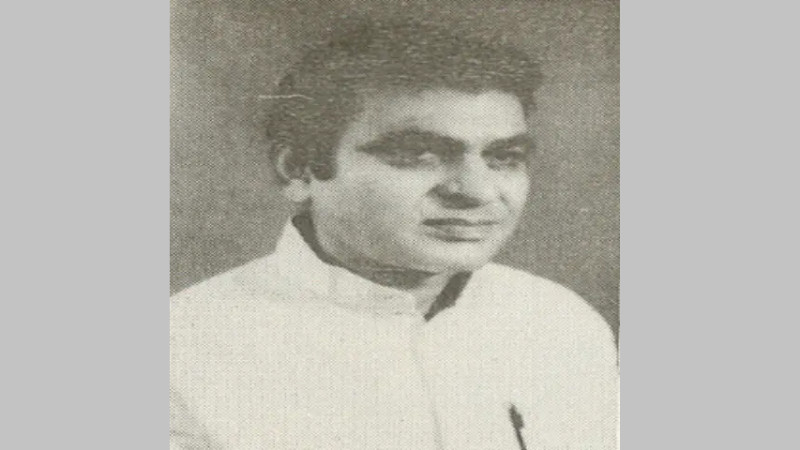
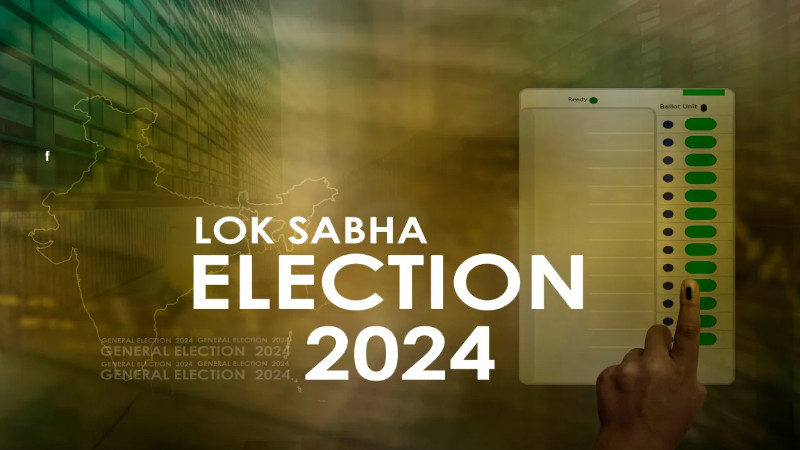
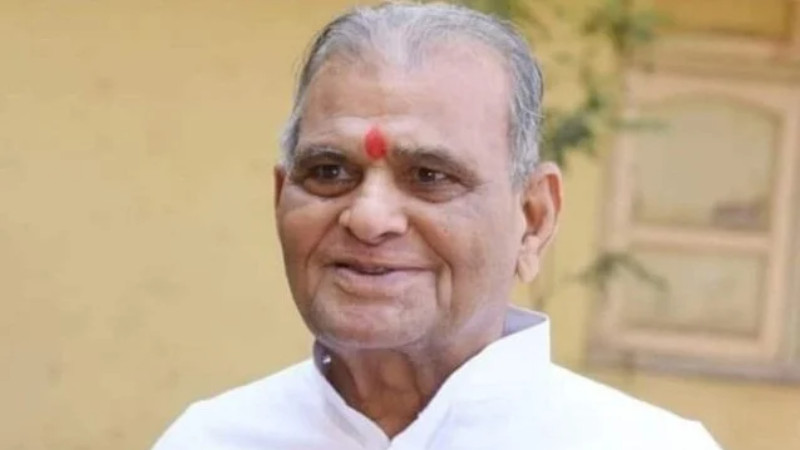
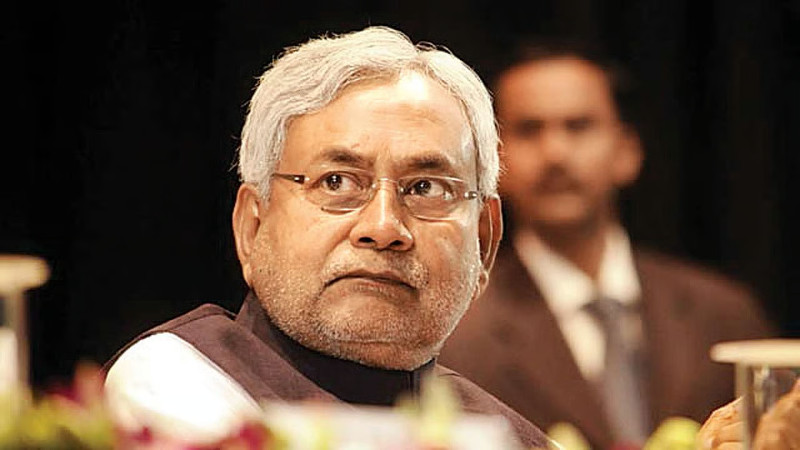
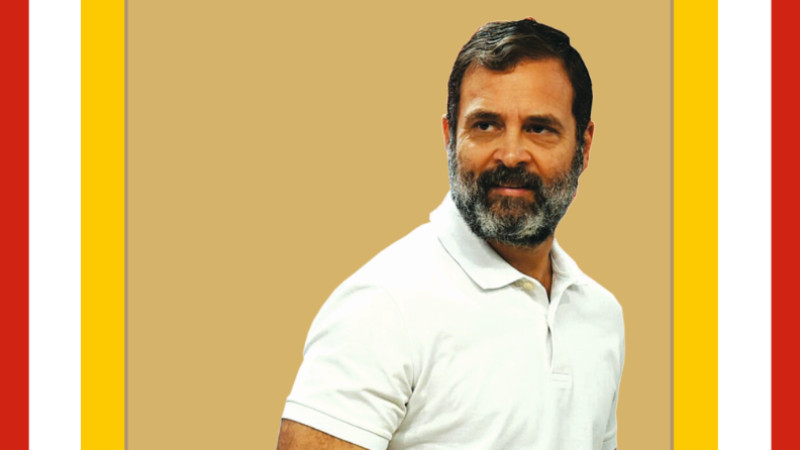
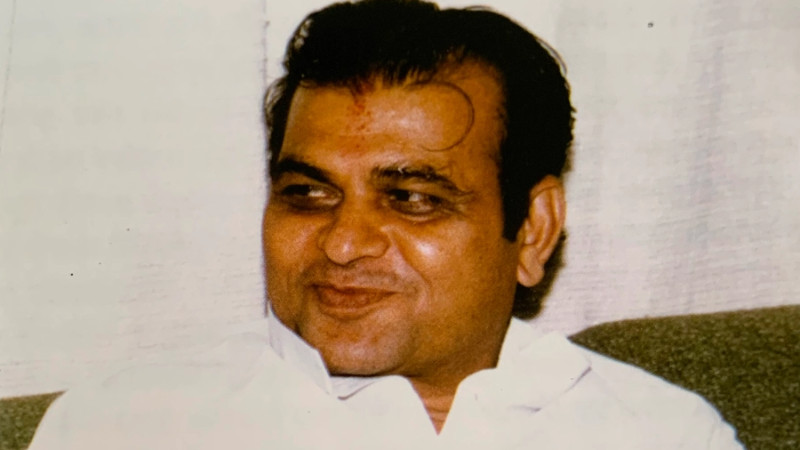

























Add Comment